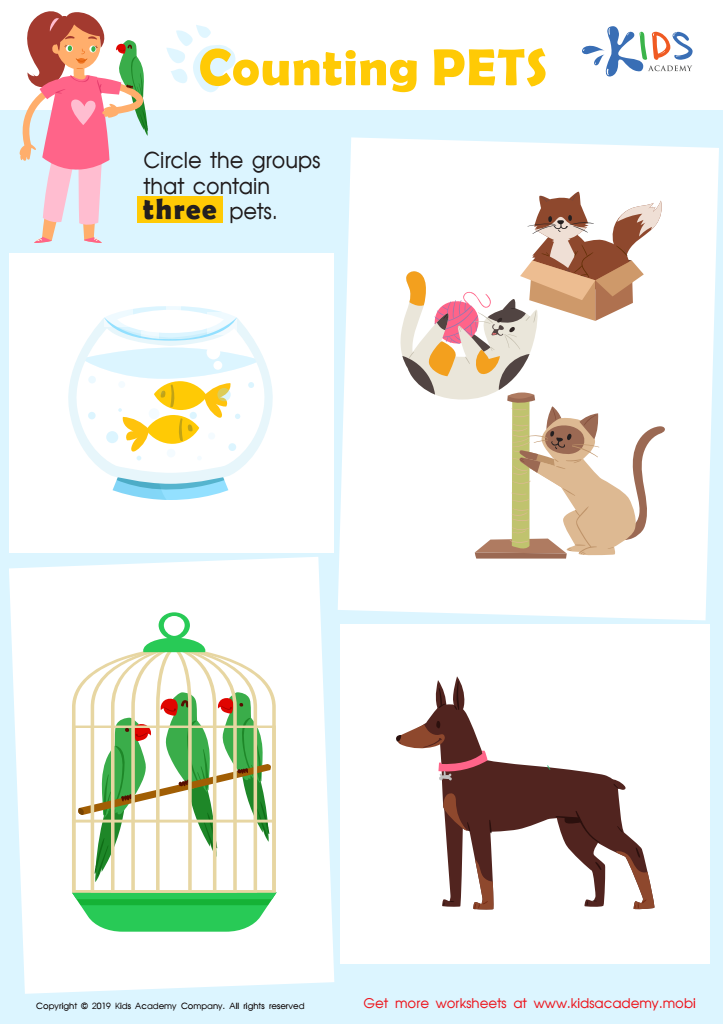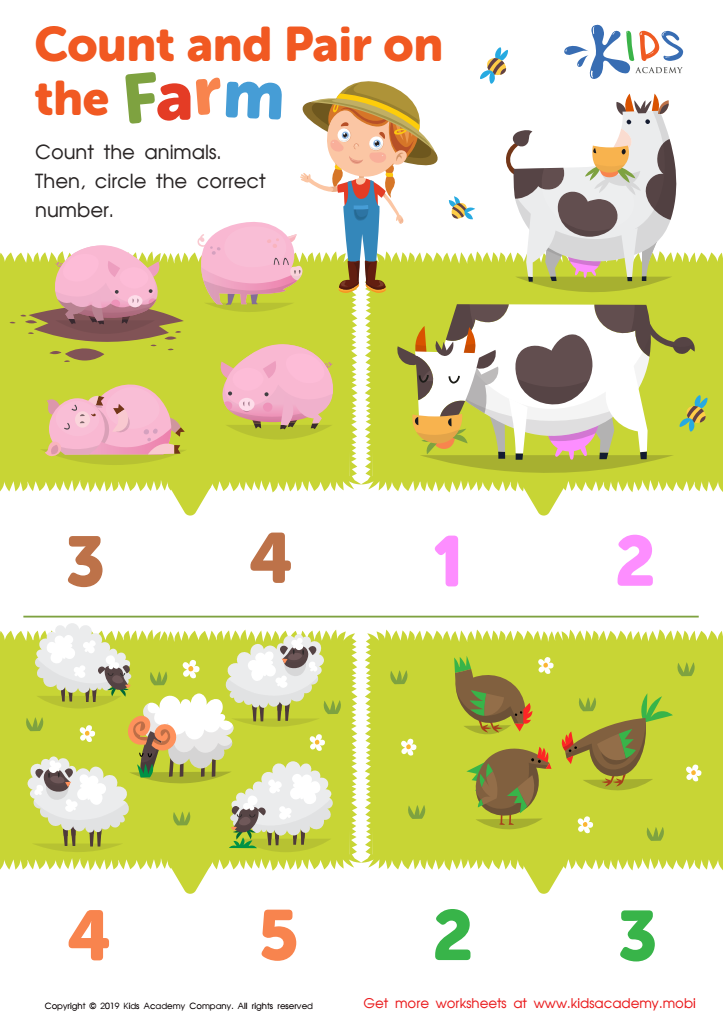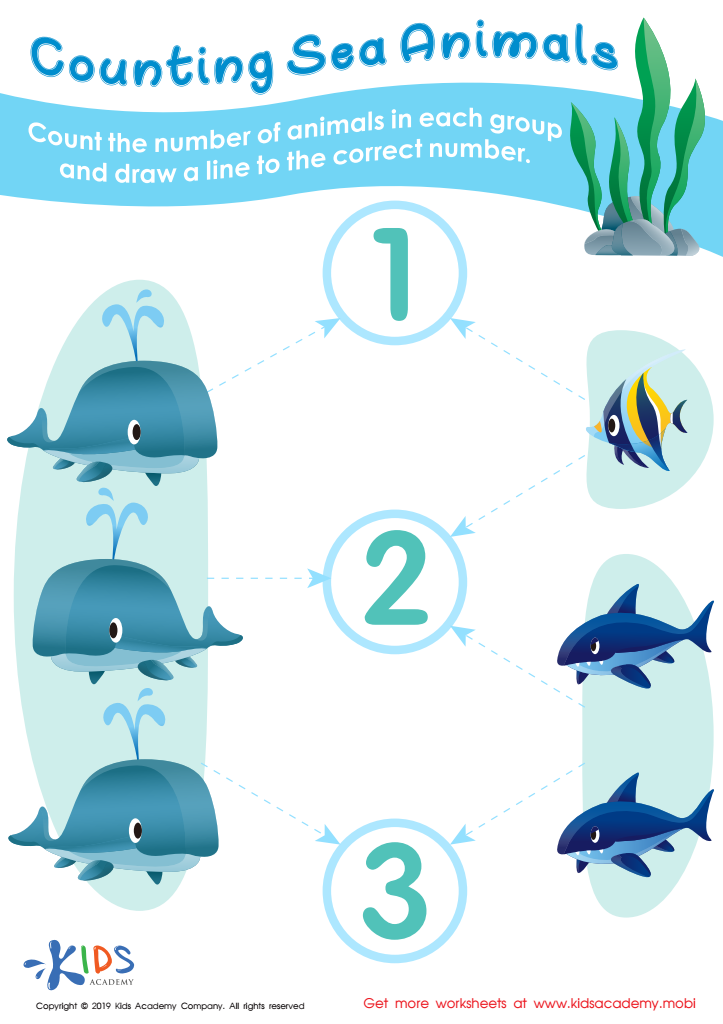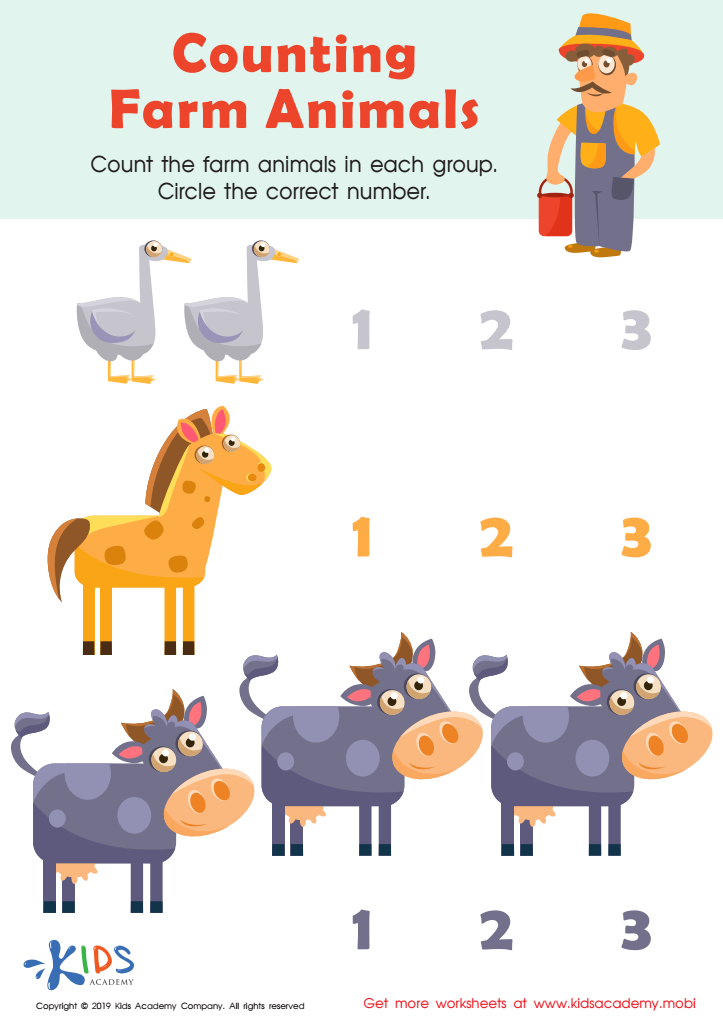Animal recognition Normal Numbers Worksheets
4 filtered results
-
From - To
Welcome to our "Animal Recognition Normal Numbers Worksheets" page at Kids Academy! These engaging and educational worksheets are designed to help children develop essential number recognition skills through the fun and exciting theme of animals. Each printable worksheet combines vibrant illustrations of various animals with easy-to-follow activities, ensuring a delightful learning experience for young minds. Perfect for early grade students, these exercises bolster numeracy foundations while keeping kids entertained and motivated. Explore our fantastic collection to support your child's math journey in a playful way that fosters both curiosity and learning. Download and print perfect resources for home or classroom use today!


Counting Pets Worksheet


Count and Pair on the Farm Worksheet


Counting Sea Animals Worksheet


Counting Farm Animals Worksheet
Animal recognition using normal numbers—a way to teach children to identify and categorize animals visually and understand basic numerical concepts—should matter immensely to both parents and teachers for several reasons. Firstly, comprehending such recognition nurtures children's cognitive development. Through games and activities involving animals and numbers, kids enhance their pattern recognition skills, crucial for later complex problem-solving.
Secondly, animal recognition tied to numerical values incorporates multifaceted learning. It's a fusion of biology and mathematics, piquing children's curiosity about the natural world and engendering an early love for numbers and logical thinking. This kind of duality in learning fosters a more enriched base of knowledge.
Thirdly, this teaching method significantly boosts memory retention. Visual memory plays a key role for younger learners, and connecting an animal’s image with a number anchors both pieces of information in the child’s brain more firmly.
Lastly, such approaches often involve interactive, playful scenarios that marry fun with education. Engaging, hands-on activities sustain the child’s interest and can alleviate the anxiety often associated with learning new concepts. This excitement for learning, encouraged early on, sets a positive precedent for children’s future educational experiences.
Investing time in these foundational skills mold not only well-rounded learners but also instills a curiosity and genuine love for learning early on.
 Assign to My Students
Assign to My Students
















